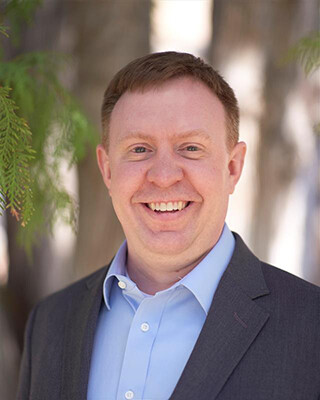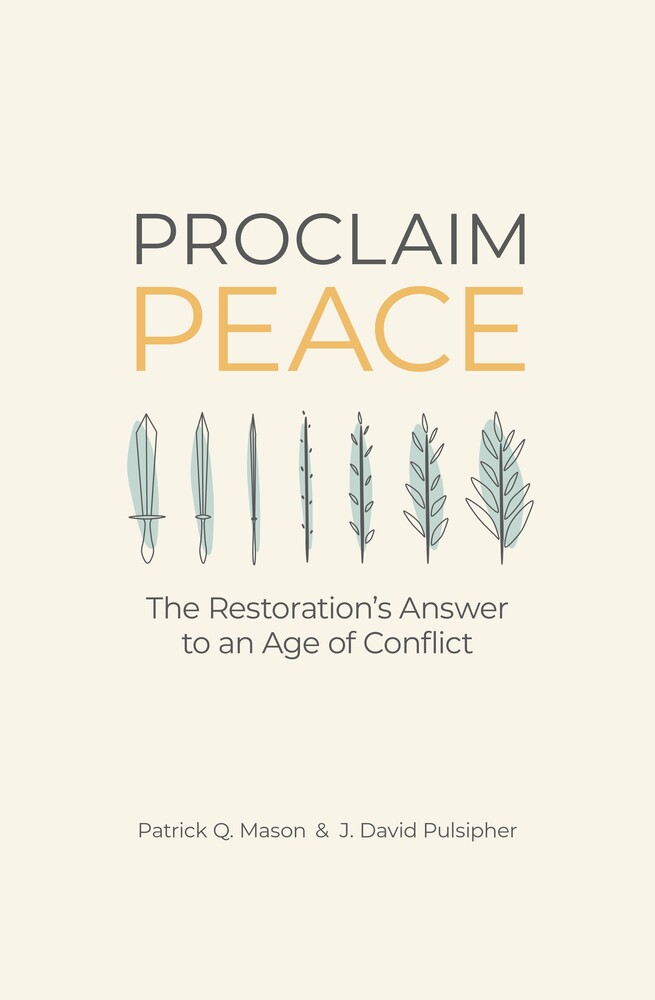Patrick Q. Mason is an associate professor of religious studies and history at Utah State University. He holds a doctorate degree from the University of Notre Dame and is frequently consulted by the media about Latter-day Saint culture and history. We recently asked him about his faith, his family, and his latest book, Proclaim Peace: The Restoration’s Answer to an Age of Conflict, co-authored with J. David Pulsipher.
Why was it important to you to write Proclaim Peace?
My coauthor, David Pulsipher from Brigham Young University–Idaho, and I were both really transformed by the events of September 11, 2001, . . . and the conflict all around the world. We saw the need to have a serious systemic look at what the scriptures we have because of the Restoration say about these issues. [We asked ourselves,] What is God trying to tell us through restoration scriptures about how Latter-day Saints are called to respond to and live in a world of violence and conflict?
What do you hope people take away from reading Proclaim Peace?
We hope that people reflect deeply on what it means as followers of Jesus Christ to be peacemakers. We feel like it’s really clear throughout the scriptures that if you’re a follower of Jesus Christ, you are called to be a peacemaker. It’s not extra, it’s not optional—it’s a staple of the diet. We hope that the book brings people into restoration scripture and they see new things . . . that will help them in their identity as peacemakers.
What do you enjoy about being a religion professor at Utah State University?
For me, it’s the chance to have serious conversations about religion with a wide variety of students. . . . Every student in Utah knows that religion matters a lot—you don’t have to convince them of that. As professors, we are trying to help our students develop religious literacy in terms of gaining knowledge, but also [to] build skills in thinking reflectively and really being inquisitive about these religions so that they can have skills to be better citizens of their community and of the world.
What is something you’ve learned from being a father?
My kids have taught me humility. They expose your weaknesses—for instance, I’m not nearly as patient as I thought I was. My kids also help me engage [with] others in ways I wouldn’t otherwise. I’m a pretty analytical guy, but that doesn’t work so well with a 5-year-old, so I have to open myself up emotionally and meet them where they are. Most importantly, I love a lot more and laugh a lot more with my kids around.
What is one thing on your bucket list?
One of my favorite bands is Radiohead; I would love to see them in concert. I would also love to go to India, [where] there is such a different worldview and perspective than what we have in the United States. . . . I love encountering difference and learning from it. I’d really want to spend some time [in India] to try to get to know the place and the culture.
What does it mean to you to let God prevail in your life?
What that question means to me is to let the scriptures speak to me, to hear God’s voice calling me to repentance and pointing out the things that I need to change, either about the way I think or about what I do. I think God should always surprise us. I love encountering God in the scriptures in ways that shake me up and tell me that what I’m thinking or what I’m doing could be better. And then giving myself over to Him—that’s the prevail part, actually letting Him win the argument.
►You may also like: Seeking to understand loved ones experiencing faith-related doubts, with Patrick Mason



